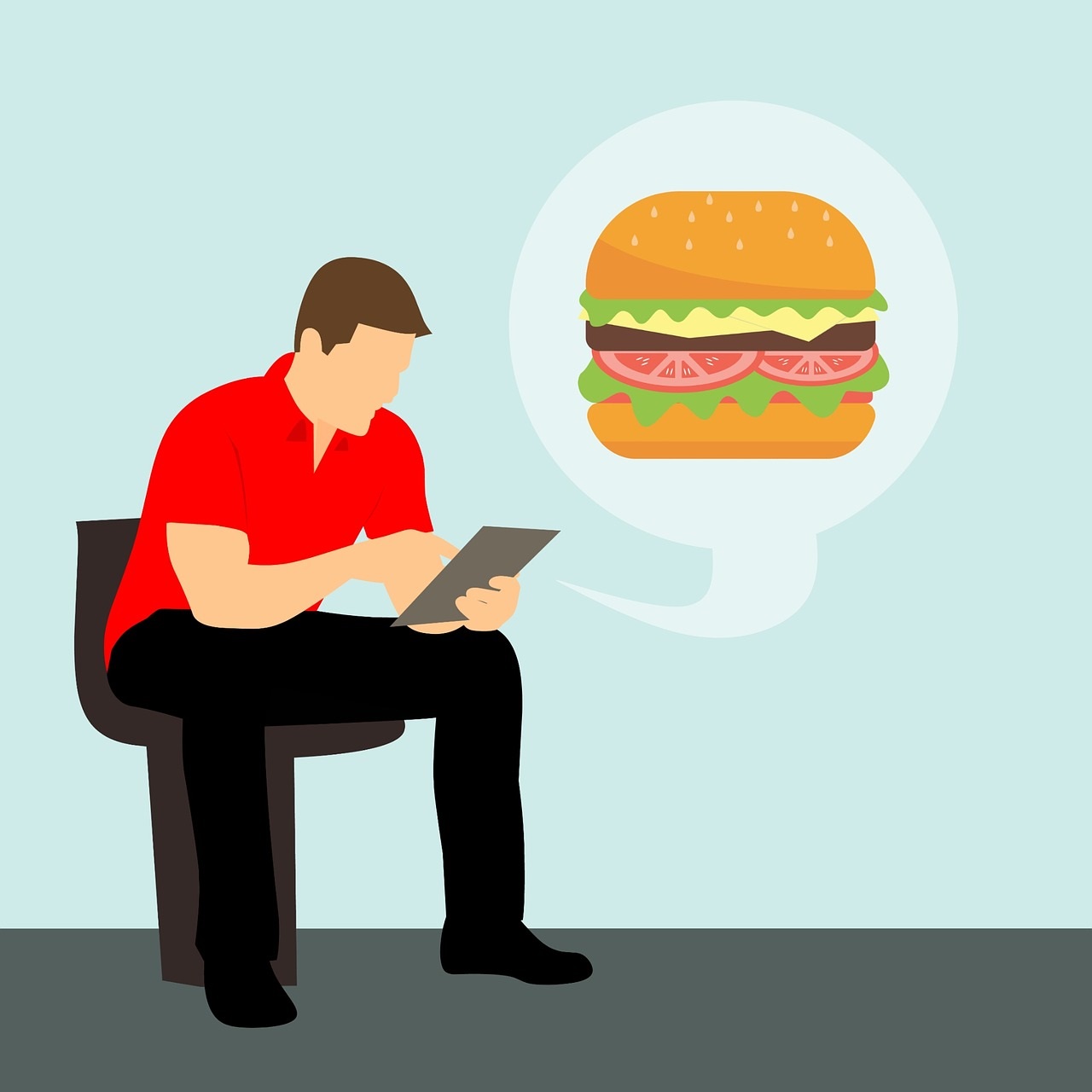3 Ways Mindfulness Can Help You Stop Boredom Eating
If you’ve been struggling to deal with boredom eating, and traditional methods haven’t yielded results, the most effective solution may well be mindfulness. There isn’t a method more potent than mindfulness to curtail emotional eating. The key lies in its ability to grant you profound control over involuntary actions. That’s why, in this post, I will illustrate how mindfulness can help you stop boredom eating.
Boredom eating is a type of emotional eating disorder stemming from various psychological factors that lead us to believe food can resolve our emotional challenges. We are conditioned to seek solace in food when feeling low or bored. However, terms like “emotional eating” should not overly preoccupy us, as people worldwide associate various emotions with food. This attachment often revolves around dishes triggering cherished childhood memories, while aversions might result from past negative experiences. Personally, I remember refraining from eating popcorn for an extended period after falling seriously ill once, even though popcorn wasn’t the cause. This exemplifies how our minds connect specific emotions to various foods based on individual experiences and memories.
I am sharing all this information to help you comprehend how our psychology operates and why we turn to snacking or overeating when we’re not feeling well. Even though boredom doesn’t necessarily equate to unhappiness, our minds struggle with it because, much like a child, it constantly seeks something engaging. The anticipation of taste and pleasure leads our minds to view eating as a perfect solution to alleviate boredom. Consequently, our minds persistently dwell on thoughts of food when we experience boredom.
The food industry is one of the largest in the world, built not solely on addressing hunger but on the premise that consuming tasty food evokes a positive emotional response. It’s not just the idea of food being something special; it’s also the physical processes, such as the release of specific chemicals and happy hormones, that contribute to the pleasurable feelings associated with eating something delicious. This is a key reason behind our strong affinity for eating.
However, when we begin viewing food as a solution to cope with our emotions, that’s when it can develop into an addiction. Eating ceases to be an enjoyable activity when done to combat boredom because, instead of relishing the positive emotions, we start to feel negative. This shift can lead to self-criticism for perceived weak willpower, resulting in feelings of guilt and diminished self-confidence. The negative self-talk associated with emotional eating is more destructive than binge eating because it hurts our self-image so it is more important to work on our thoughts and feelings than try to control our actions because the latter is resulted from the first.
This is why Mindfulness is so helpful in stopping your addiction to food, by using it you can successfully stop your habit of eating when feeling bored because it works on your thoughts and emotions first, gaining awareness of your eating habits is one of the key health benefits of practicing mindfulness, so let me show you some very significant ways in which mindfulness methods can prove to be useful in this regard.
#1 Working On Your Cravings
Sometimes just any food is not enough for us, we want to eat something in particular, and during all such times hunger is not real and it is just a false need created by our mind to escape boredom. There was a time when I used to feel hungry in the middle of the night even after eating enough at dinner time then I learned to mindfully observe my body’s response during the times when I was really hungry and when I was not, it was something I practiced sincerely when I was following intermittent fasting while completing Ronan Oliveira’s beyond fasting course, that’s when I learned that I was actually confusing thirst with hunger and just a glass of water was enough to satisfy what I was assuming to be hunger.
The truth is that most of the time when we think about food, we’re not genuinely hungry. The food cravings we experience often stem from emotional issues, with boredom being a particularly common reason for people to eat at unconventional times. Snacking, in particular, tends to be a favored solution to escape such feelings.
Mindfulness helps us to understand our cravings, by observing our emotions and thoughts when we feel the urge, we can gain an awareness of what makes us perceive food as something that will solve our problems. When you become aware of your relationship with your body and mind, you gain insights about why you are unconsciously trained to think and act in a certain way, this will enable you to work at the root cause of your cravings.
A thief can enter the house only when people are asleep similarly the thoughts that make you crave certain food items can only convince you to act when you are unaware, by practicing mindfulness you can catch such thoughts at the very beginning or you can stop yourself from acting out of those thoughts.
#2 Identifying Your Triggers
Do you know there is often something that triggers our need to eat? When we are bored, it is not necessary that our thoughts directly prompt us to eat food; while that can happen, if it were the only case, it would be easier for us to resist during such times. Emotions hold greater power than thoughts; you can restrain yourself from acting on a thought, but it becomes challenging when emotions are intertwined with your thoughts.
Thoughts linked to your memories can trigger emotional responses, indirectly prompting you to eat even when you are not hungry. This is why it is essential to keep yourself busy. When idle, your thoughts tend to be random and often connected to past memories, some of which may not be very pleasant. Before you know it, you find yourself near the refrigerator or snack jar.
Have you watched the movie Kung Fu Panda? If not then just watch this small clip, it shows what I am trying to say here.
In this scene, Po is eating because he is sad about the fact that he is not as good as the others, the feeling of not being good enough is making him feel bad and that’s why he is eating to feel better. A lot of us can relate to Po here, the trigger here that’s causing him to eat is his lack of belief in his own abilities. Likewise, whenever we are bored we end up eating something because the thoughts that enter our mind when we are not doing something interesting trigger a deep psychological issue similar to what happens to the Kung Fu Panda. What is the solution? It is pretty much the same as what Master Oogway suggests in that scene i.e. present moment awareness which you can gain by practicing mindfulness.
There are other forms of triggers as well. Suppose you are watching TV, and there’s a commercial featuring someone eating ice cream. Later, as you go about your daily chores, on another day when you are idle, one of the random thoughts that enter your mind when bored is the recollection of that commercial, prompting you to go and eat ice cream.
Being mindful of your food choices and practicing mindfulness regularly will help you to identify these triggers, once you are aware of these thoughts and emotions, they lose their power over you and then you will not blindly follow what the voices inside your head are telling you.
#3 Gain More Control
The most important thing about being mindful when you eat and implementing mindfulness meditation in your daily life is that it gives you more control over your actions which would otherwise be habitual and depend greatly on your emotional response to your life situation.
If you eat when you feel bored then what you need to understand is that both the boredom and the need to escape the boredom are created by your own mind, being more aware of your thoughts will help you gain a better understanding of your inner world and what makes you behave in a certain way when you actually want to do something else.
Mindfulness methods can not only help you to deal with the cravings and your habit of eating but it also gives you the power to make better choices. If you will start to eat mindfully you will gain awareness of the things that you were otherwise oblivious to, like you will understand when you are full and what type of food suits you.
This way, you will replace your snacks with healthier choices. Even if you indulge a bit when you are bored, you can at least avoid feeling guilty about consuming something detrimental to your health. One of the significant factors that keep us addicted to certain habits is the subsequent feeling of guilt after succumbing to cravings. By eating mindfully, you can gain more willpower and self-confidence, which will, in turn, help you break the habit of eating whenever you feel bored altogether. If you find it difficult to follow mindfulness or don’t know where to begin then I suggest you read my post on mindfulness exercises.
I hope you liked this post, I would be very happy to hear from you so, please leave me your comments in the box below, it will motivate me and help me to improve my blog’s content. If I missed anything important then please do mention it in the comment section.
You can send your emails using the contact page, I will be more than happy to help you with any of your issues.
If this post was helpful to you then please spread the word by sharing it on your online social networks.
